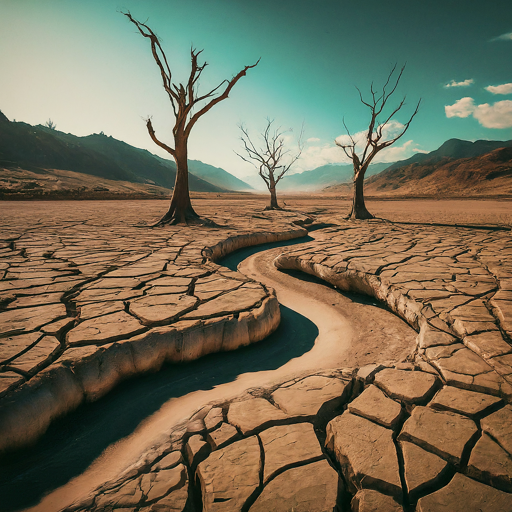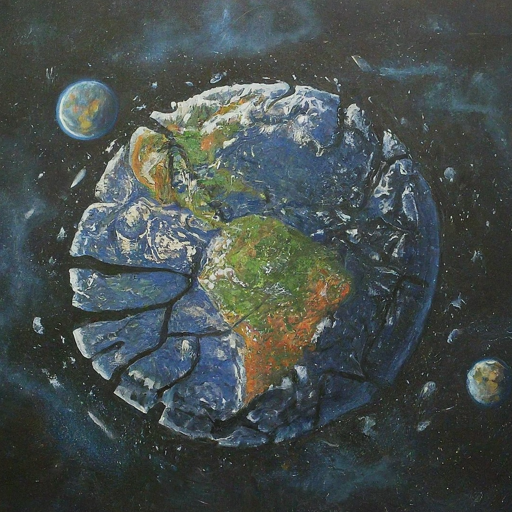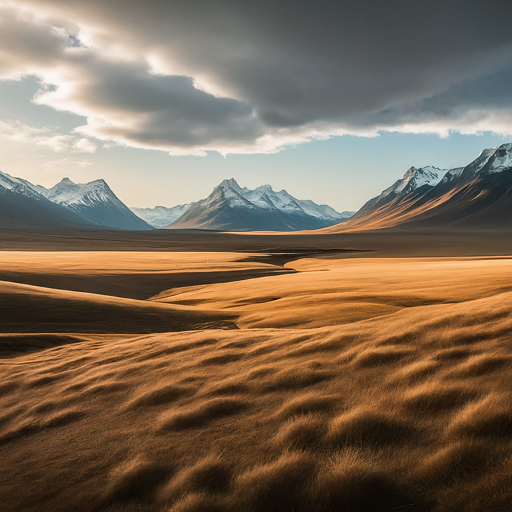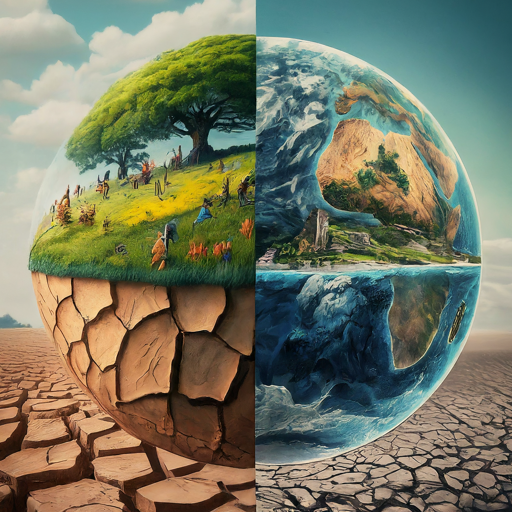Did you know that without water, air, gravity, sun, trees, and humans, the Earth as we know it would undergo unimaginable transformations? In this captivating article, we will explore a series of hypothetical scenarios that will take you on a thought-provoking journey into the very essence of our planet. Brace yourself for a glimpse into a world where the fundamental elements vital for life are stripped away, revealing the intricate interplay that sustains our delicate ecosystem.
The Consequences of Earth Without Water

In this section, we explore a hypothetical scenario where Earth loses all its water. The absence of this essential element would result in drastic consequences for our planet and its ecosystems.
The Disappearance of Oceans
Without water, Earth’s majestic oceans would vanish, leaving behind vast stretches of parched land and dry riverbeds. Where once vibrant marine ecosystems thrived, a desolate landscape would remain.
Impact on Marine Life
The absence of water would spell doom for countless species of fish, mammals, and other marine organisms. With their natural habitats destroyed, they would face extinction, disrupting the delicate balance of oceanic life.
“The disappearance of water would be catastrophic for marine life, leading to a widespread collapse of ecosystems that rely on the ocean.”
Implications for the Global Water Cycle
The loss of water on Earth would disrupt the global water cycle, resulting in far-reaching consequences. Without evaporation and precipitation, the replenishment of freshwater sources would cease, leading to shortages that affect both human populations and terrestrial ecosystems.
Without water, life as we know it would cease to exist on Earth. The absence of this vital resource highlights the interconnectedness of our planet’s various elements and emphasizes the importance of preserving and conserving our water resources for a sustainable future.
Earth Without Air: A Breathless Planet

In this section, we will explore a hypothetical scenario where Earth is devoid of air, examining the dire consequences this would have on our planet. The absence of breathable air would have a profound impact on atmospheric composition, the survival of organisms, and the collapse of ecosystems that rely on air for their sustenance.
Effects on Atmospheric Composition
Without air, Earth’s atmosphere would be drastically altered, leading to catastrophic consequences. The absence of gases such as oxygen and nitrogen would disrupt the delicate balance that supports life as we know it. The atmospheric pressure, temperature, and composition would change, making it impossible for most organisms to survive.
The Absence of Breathable Air for Organisms
In a world without air, living organisms would face a grim fate. Humans, animals, and plants heavily rely on oxygen to carry out vital metabolic processes. Without access to breathable air, organisms would suffocate, leading to mass mortality and the extinction of countless species.
The Collapse of Ecosystems Dependent on Air
Air plays a crucial role in supporting diverse ecosystems on Earth. From the smallest insects to the largest mammals, creatures rely on air to breathe, fly, and pollinate. The absence of air would disrupt these intricate relationships, causing ecosystems to crumble. Plant life would suffer, leading to a decline in food sources and habitat loss for various species. The intricate web of life on Earth would unravel, pushing many organisms to the brink of extinction.
The Absence of Gravity: A Weightless World

In this section, we will delve into the fascinating consequences of Earth without gravity. The absence of this fundamental force would have far-reaching effects on our planet and everything within it.
Impact on Human Physiology
If gravity disappeared, humans would experience an entirely different physical sensation. Without the force pulling us toward the Earth’s surface, we would float freely, unencumbered by gravity’s grip. Everyday activities such as walking, running, and even sitting would require a completely different approach. The lack of gravity would also affect the human cardiovascular system, bone strength, and muscle mass, as they adapt to the weightless environment.
Alteration of Natural Phenomena
Gravity plays a vital role in shaping natural phenomena on Earth. Without gravity, the ebb and flow of tides would cease to exist, disrupting coastal ecosystems and marine life cycles. Weather patterns would also undergo significant changes, impacting the distribution of precipitation and altering climatic conditions across the globe. The absence of gravity’s influence would lead to unforeseen shifts in Earth’s delicate balance.
Disruption of Ecosystems
Gravity enables essential ecological processes, such as the flow of nutrients and water within ecosystems. Its absence would interrupt these dynamics, affecting the growth and survival of various organisms. Plants, for example, rely on gravity to guide their roots towards the soil and their leaves towards the sun. Without gravity, the orientation of plants would change drastically, leading to the development of new adaptations and the potential extinction of certain species.
“The absence of gravity would revolutionize our understanding of the natural world and how life adapts to different environments.” – Dr. Jane Adams
As we explore the hypothetical scenario of a weightless Earth, we gain valuable insights into the intricate relationship between gravity and life on our planet. The absence of gravity would not only redefine our physical experiences but also prompt us to reassess our understanding of the natural world and the forces that shape it.
Life Without the Sun: Cold and Dark

In this section, we invite you to imagine a hypothetical scenario where Earth is plunged into darkness, devoid of the sun’s life-giving presence. The sun, a constant source of heat, light, and energy, plays a fundamental role in sustaining life on our planet. Let us explore the remarkable consequences of a world without the sun and the profound impact it would have on temperature, photosynthesis, and the survival of organisms that depend on solar energy for sustenance.
The Impact on Temperature
Without the sun’s warming rays, Earth would be cast into eternal darkness, resulting in a significant drop in temperature. The absence of sunlight would lead to a global freeze, with a drastic reduction in surface and atmospheric heat. Days and nights would blend together in an indistinguishable frigid state, creating an inhospitable environment for life as we know it.
The Disruption of Photosynthesis
Photosynthesis, the remarkable process by which plants convert sunlight into energy, would come to a halt without the sun’s presence. This would have devastating consequences for Earth’s ecosystems. Plants, algae, and other photosynthetic organisms that form the basis of the food chain would struggle to survive. The resulting lack of food and Oxygen would have a domino effect, impacting all organisms that depend on them for sustenance.
The Survival Challenges
Organisms that rely directly or indirectly on solar energy for survival would face unprecedented challenges. Solar-dependent creatures, such as solar-powered bacteria, would struggle to find alternative energy sources, potentially driving them to extinction. The loss of sunlight would disrupt natural rhythms, altering migration patterns, breeding cycles, and the overall behavior of animals, further impacting the delicate balance of ecosystems.
Without the sun, life on Earth would be thrown into chaos. The absence of its energy, warmth, and light would result in a desolate and inhospitable world, devoid of color, and teetering on the brink of extinction. It serves as a powerful reminder of the sun’s vital role in sustaining all life on our planet.
| Effects of Life Without the Sun | Description |
|---|---|
| Temperature Drop | A significant decrease in global temperatures due to the absence of sunlight. |
| Disruption of Photosynthesis | The halt of the photosynthesis process, leading to the collapse of ecosystems dependent on sunlight for energy. |
| Survival Challenges | Organisms relying on solar energy would face immense challenges, with potential extinction risks. |
Earth without Trees: The Loss of Greenery

Without trees, Earth would suffer severe consequences, impacting various aspects of our planet. Let’s explore the implications of a world devoid of these vital organisms.
Implications for Oxygen Production
Trees play a critical role in producing oxygen through photosynthesis. They absorb carbon dioxide and release oxygen, maintaining a delicate balance in our atmosphere. Without trees, the oxygen levels would significantly decrease, leading to a suffocating environment for both humans and animals.
Habitat Loss for Various Species
Trees provide crucial habitats for numerous species, including birds, squirrels, and insects. The absence of trees would result in a loss of these habitats, forcing many species to relocate or face extinction. The complex interconnectedness of ecosystems would be disrupted, leading to a potential collapse of entire food chains.
Disruption of Ecological Balance
Trees are an essential component of maintaining ecological balance. They regulate temperature, prevent soil erosion, and provide nutrient-rich soil for other plants. Without trees, these vital functions would be compromised, leading to increased soil erosion, unstable climates, and a significant loss of biodiversity.
Without trees, Earth would face a bleak future, with depleted oxygen levels, habitat loss, and ecological imbalance. It is essential for us to recognize the immense value of trees in sustaining life on our planet and take action to protect and preserve them.
| Implications of Earth Sans Trees | Description |
|---|---|
| Oxygen Production | Significant decrease in oxygen levels, posing a threat to human and animal survival. |
| Habitat Loss | Loss of crucial habitats for various species, leading to relocation and possible extinction. |
| Ecological Balance | Disruption of temperature regulation, increased soil erosion, and loss of biodiversity. |
A World Without Humans: Nature Reclaims

In this section, we will explore the hypothetical scenario of Earth without humans. Imagining a world without human activity allows us to consider how nature would reclaim the spaces we once occupied. Let’s delve into the potential consequences.
1. Nature Taking Over Human-Made Structures
Without humans to maintain and inhabit them, our cities and infrastructure would slowly be reclaimed by nature. Buildings would crumble, and concrete jungles would give way to actual jungles as plants and wildlife take over.
“If all human activity ceased, it would only be a matter of time before nature sweeps back in and begins to reclaim our manmade structures.” – Environmental Scientist, Dr. Jane Mitchell.
2. The Restoration of Ecosystems
With humans out of the picture, ecosystems would have the opportunity to restore themselves. Natural processes like succession, the gradual change in plant and animal communities, would occur unhindered, allowing damaged environments to heal.
- Forests would expand, providing habitats for countless animal species and promoting biodiversity.
- Rivers and streams would run freely, creating healthier aquatic ecosystems and supporting a variety of aquatic life.
- Wetlands would thrive, acting as crucial breeding grounds for waterfowl and other wildlife.
- Grasslands and prairies would return, offering vast grazing areas for herbivores and attracting predators.
3. Long-Term Effects on Wildlife Populations
The absence of humans would also have a profound impact on wildlife populations. As natural habitats are restored, endangered species may have a chance to recover and thrive. Without the pressures imposed by human activities such as hunting and deforestation, ecosystems could reach a more balanced state.
| Species | Population Trend |
|---|---|
| African Elephants | Stable to increasing |
| Amur Leopards | Stable to increasing |
| Gray Wolves | Increasing |
| Sea Turtles | Stable to increasing |
Table: Endangered Species Population Trend in a World Without Humans
It is important to note that while the absence of humans may provide short-term benefits to certain species, the long-term consequences and ecological dynamics would be complex and unpredictable.
The scenario of Earth without humans serves as a reminder of our interconnectedness with nature. As stewards of this planet, it is our responsibility to protect and preserve its precious ecosystems for the benefit of all living beings.
Conclusion
In this article, we have delved into various hypothetical scenarios that envision Earth without essential elements such as water, air, gravity, sun, trees, and humans. These imaginative scenarios serve as a reminder of the intricate interdependence of these elements on our planet.
Through exploring these hypothetical scenarios, we gain a deeper appreciation for the delicate balance that exists on Earth. We realize the indispensability of water for sustaining life, the significance of air for breathable ecosystems, the crucial role of gravity in shaping our planet’s dynamics, and the immense impact of the sun’s energy on sustaining life in various forms.
Additionally, we recognize the pivotal role that trees play in maintaining oxygen levels, providing habitats for countless species, and contributing to the ecological equilibrium. Furthermore, we acknowledge the profound impact of humanity on the environment, highlighting the necessity to protect and preserve Earth’s resources for the well-being of future generations.
As we reflect on these hypothetical scenarios, it becomes evident that our planet is a remarkable and intricate system, with each element playing a vital role. By understanding and valuing this delicate balance, we can work towards creating a sustainable future for Earth, ensuring the preservation of its resources and the well-being of all its inhabitants.
FAQ
What would happen if Earth lost all its water?
The disappearance of Earth’s water would lead to the vanishing of oceans, resulting in devastating consequences for marine life and the global water cycle.
How would Earth be affected without air?
Earth without air would have severe effects on atmospheric composition, making it impossible for organisms to breathe and causing the collapse of ecosystems that rely on air for survival.
What would happen if Earth didn’t have gravity?
The absence of gravity on Earth would significantly impact human physiology, alter natural phenomena like tides and weather patterns, and disrupt ecosystems that depend on gravitational forces.
How would Earth be affected without the sun?
Earth without the sun would lead to extreme cold and darkness, affecting temperature, photosynthesis, and the survival of organisms that rely on solar energy for sustenance.
What are the consequences of Earth without trees?
Earth without trees would have implications for oxygen production, habitat loss for various species, and an imbalance in ecosystems caused by the absence of these vital organisms.
What would happen if humans disappeared from Earth?
In the absence of humans, nature would reclaim human-made structures, ecosystems would potentially be restored, and wildlife populations would experience long-term effects.

